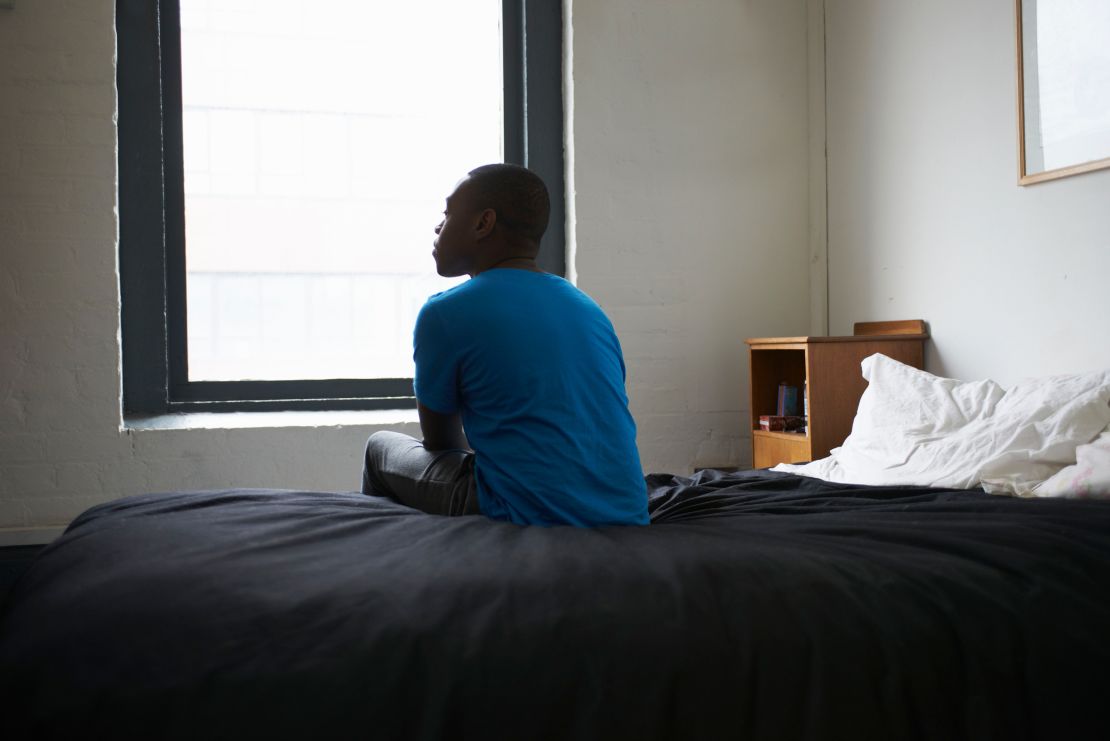The bachelor lifestyle may not be all it’s cracked up to be, gentlemen.
Research has previously shown that years of living alone can have harmful effects on a person’s health, and a new study published Monday shows that at least one of those impacts may be particularly bad for men.
The study looked at blood samples of 4,835 participants from the Copenhagen Aging and Midlife Biobank to examine levels of inflammation.
“We have found a significant association between partnership breakups or years lived alone and inflammation for men only, after adjustment for selected confounders,” said Dr. Karolina Davidsen, research associate in the Department of Public Health at University of Copenhagen and publishing author of the study. “In women, we find no such effect.”
The study, published in the journal BMJ, looked at both years living alone and number of breakups because the end of significant relationships are often followed by periods of living alone, the researchers wrote. Looking only at divorces was not sufficient to track loss of partnerships because of the growing number of people who have significant relationships but do not marry, according to the study.
A connection between feeling lonely and adverse health impacts has been well documented, said Dr. Peter Libby, a cardiovascular medicine specialist at Brigham and Women’s Hospital, who was not involved in the study. This study strengthens the link experts have seen between the nervous system and inflammation, which is a significant contributor to heart disease, Libby said.
“There is increasing understanding of fundamental links between psychological stress and biological variables related to inflammation,” Libby said.
The women who participated in the study did not show as strong of an association between living alone or many breakups and inflammation, but Davidsen noted that might partly be a result of the smaller number of female participants compared to males involved in the study.
The levels of inflammation in the participants might also have looked different if they were measured at more advanced ages, Davidsen added. The average age of those studied was 54.5 years old, and it is possible that the impacts of the breakups and years lived alone would have continued as the participants aged, she said.

Being alone versus feeling alone
What’s someone living solo – whether by choice or circumstances – supposed to do? Davidsen said knowing that information can be valuable to doctors who are treating them.
“One (suggestion) might be to advise health professionals to be aware of this at-risk group that might be living with an additional social risk factor not usually taken into account,” she said.
Knowing that inflammation risks may be increased, Libby said he advises patients to strive for a healthy lifestyle.
“When faced with adversity of any sort, regular physical activity and healthy diet may help well-being, both psychological and biological,” Libby added.
Like most things, living alone comes with its risks and benefits.
Loneliness has been linked to reductions in health, well-being and cognition – but living alone does not always mean being lonely.
In recent years, research has shown more people are not married and are living alone, and yet data has revealed that loneliness decreased from age 50 to about the mid-70s, said Louise Hawkley, a senior scientist at the nonpartisan research organization NORC at the University of Chicago. Hawkley was not involved in the study on inflammation.
A diverse social network, as well as a sense of control over one’s own life, had a significant impact on how lonely a person felt, according to Hawkley’s 2019 research.
Single and satisfied
For some, being single is even an advantage, according to Elyakim Kislev, an assistant professor at The Hebrew University of Jerusalem.
Kislev analyzed US and European databases, including the US Census Bureau and the European Social Survey, as part of an examination of trends in singlehood and what made some singles happy.
He studied relationship mores in over 30 countries and conducted more than 140 interviews with single people in the US and Europe – people between ages 30 and 78 who together represented a mix of genders, sexualities, and socioeconomic and ethnic backgrounds.
He found key differences between happy singles and unhappy singles generally depended upon whether they internalized stereotypes about being single or shrugged them off.
Some happy singles’ solitude was also offset by procuring exciting experiences, such as traveling or finding new hobbies. They used their time alone to “replenish themselves” and “be empowered by focusing on themselves in these moments,” Kislev said.
The most recent study may shine a light on the risks of men living alone, but health is multi-faceted and monitoring risk factors, maximizing wellness, and treating inflammation that does arise with the help of your doctor can help patients live healthy lives, Libby said.








